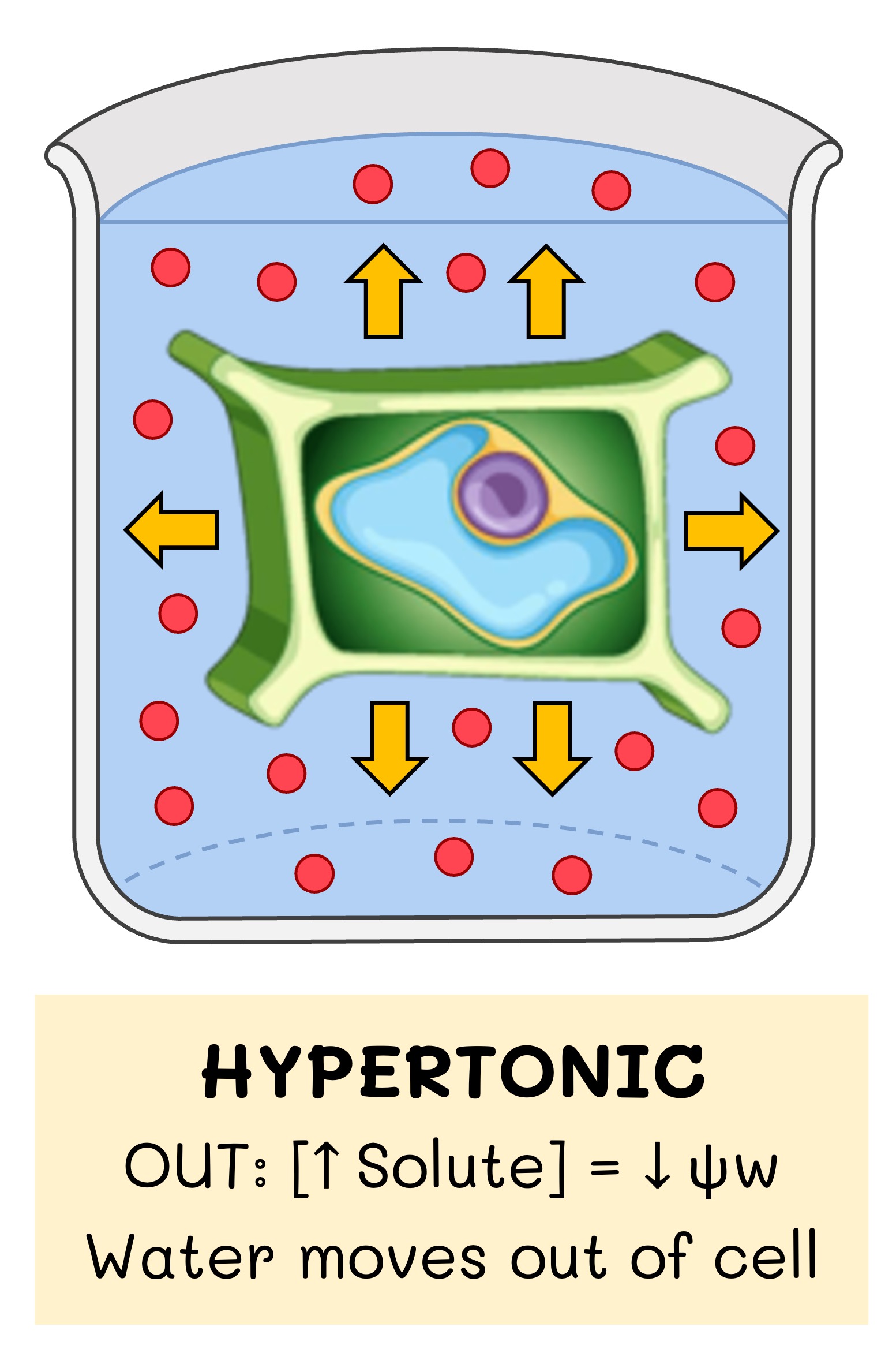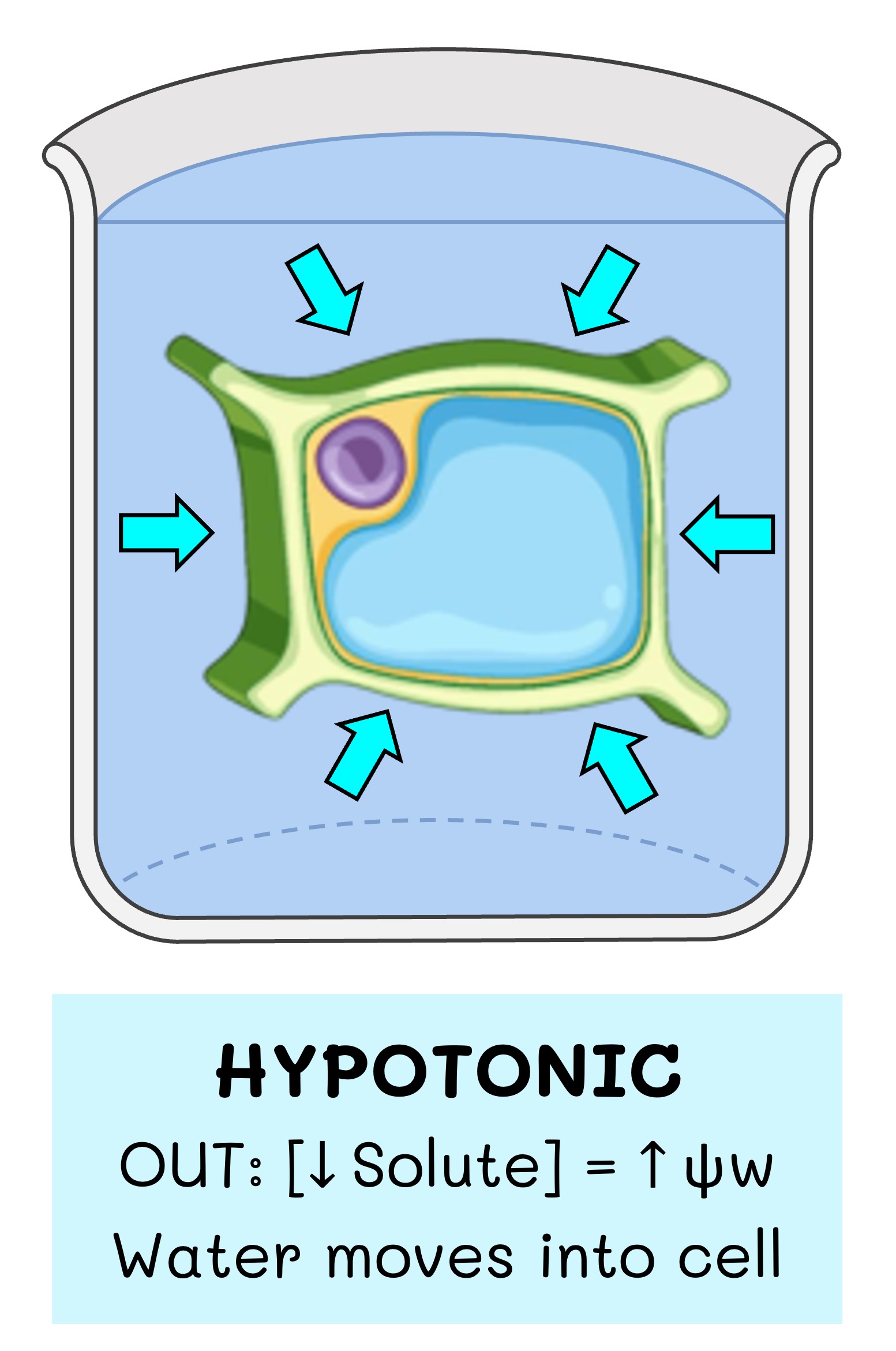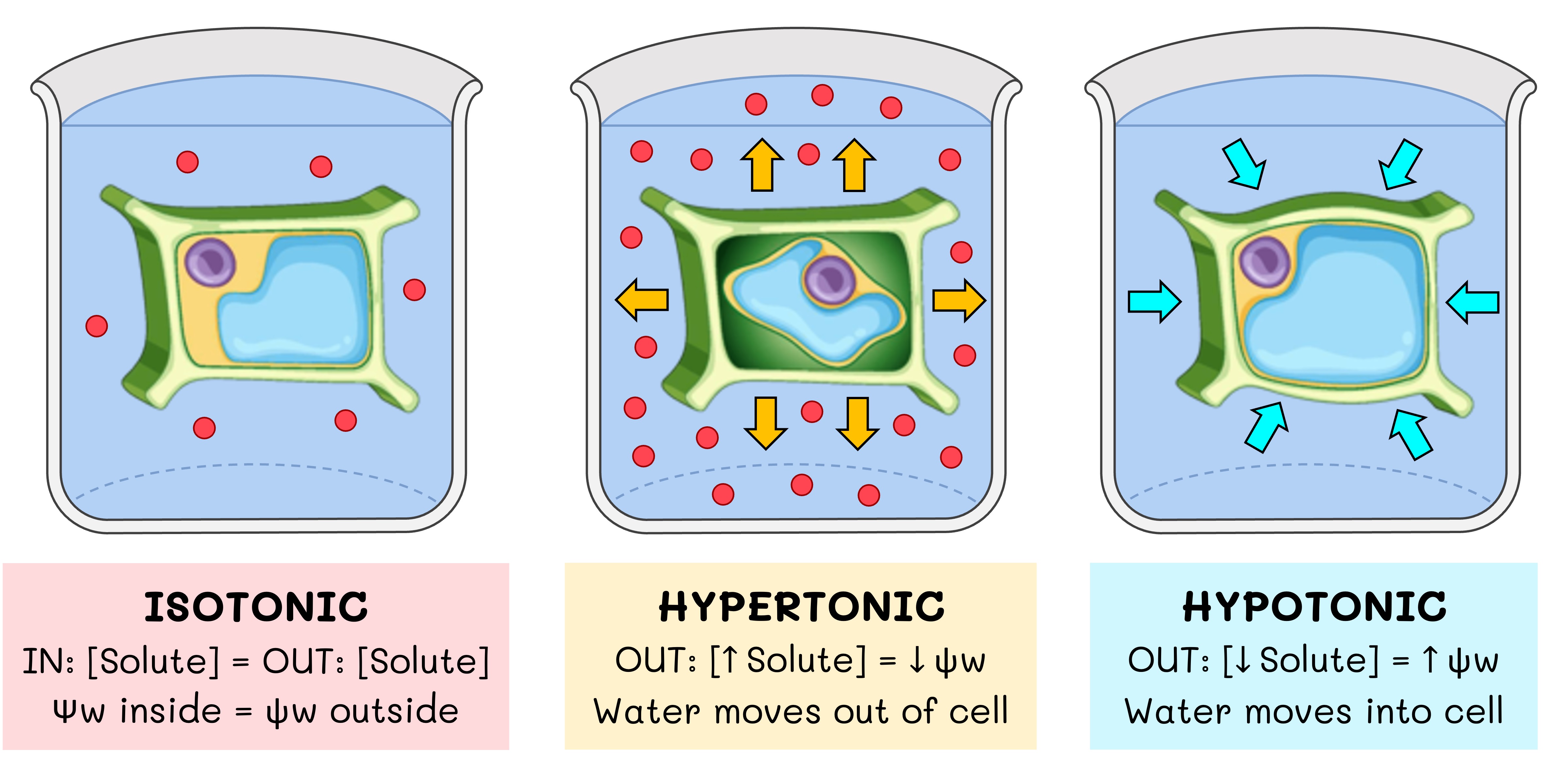

Water Movement
Water molecules move from an area of high water potential to an area of lower water potential
-
Adding solutes lowers the water potential – water has less potential energy for movement because the energy is being utilised to form polar associations (H bonds) with the solute
-
Increasing pressure raises water potential – water will be exposed to greater rates of collision, facilitating the transfer of potential energy to kinetic (movement)
Water will move from a higher water potential to a lower water potential until equilibrium is reached (both regions share the same water potential)
Plant Tissue
Plant tissue can gain or lose water according to the relative water potential of the internal and external environment
-
Animal cells do not possess a cell wall and hence lack the capacity to retain their structure following significant water movement
In hypertonic solutions:
-
The external solution has a lower water potential (solute concentration is higher, making the solute potential more negative)
-
Water leaves the cell, which causes the pressure potential to decreases (fewer water molecules exerting pressure on the plasma membrane)
-
With reduced turgor pressure, the plasma membrane retracts from the cell wall (plasmolysis) and the cytoplasmic volume decreases from water loss
-
The loss of volume causes the pressure potential to build to a point where the internal water potential matches the external water potential and no more water is lost

In hypotonic solutions
-
The external solution has a higher water potential as a consequence of having a lower solute concentration (pure water has a solute potential of 0)
-
Water enters the cell, which causes the pressure potential to increase (the increased cytoplasmic volume pushes the membrane against the cell wall)
-
The increase in turgor pressure causes the internal water potential to eventually match the external water potential and the uptake of water stops

Plant Water Potentials





